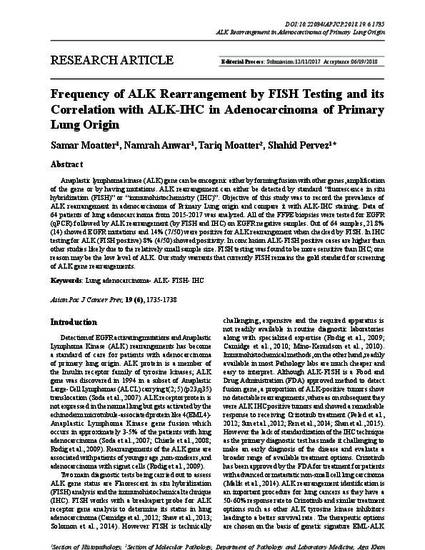
Anaplastic lymphoma kinase (ALK) gene can be oncogenic either by forming fusion with other genes, amplification of the gene or by having mutations. ALK rearrangement can either be detected by standard “fluorescence in situ hybridization (FISH)” or “immunohistochemistry (IHC)”. Objective of this study was to record the prevalence of ALK rearrangement in adenocarcinoma of Primary Lung origin and compare it with ALK-IHC staining. Data of 64 patients of lung adenocarcinoma from 2015-2017 was analyzed. All of the FFPE biopsies were tested for EGFR (qPCR) followed by ALK rearrangement (by FISH and IHC) on EGFR negative samples. Out of 64 samples, 21.8% (14) showed EGFR mutations and 14% (7/50) were positive for ALK rearrangement when checked by FISH. In IHC testing for ALK (FISH positive) 8% (4/50) showed positivity. In conclusion ALK-FISH positive cases are higher than other studies likely due to the relatively small sample size. FISH testing was found to be more sensitive than IHC; one reason may be the low level of ALK. Our study warrants that currently FISH remains the gold standard for screening of ALK gene rearrangements.
Available at: http://works.bepress.com/shahid_pervez/155/
